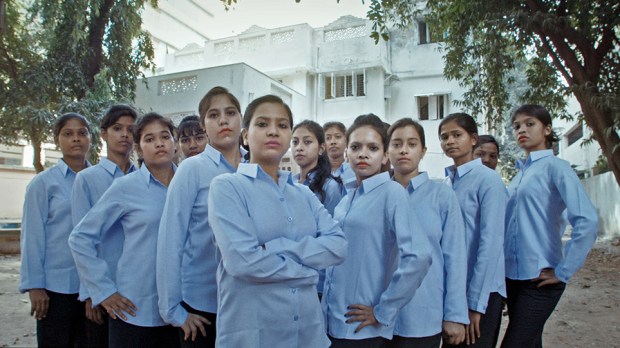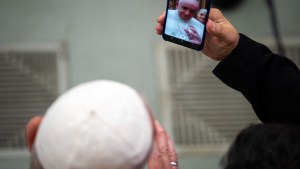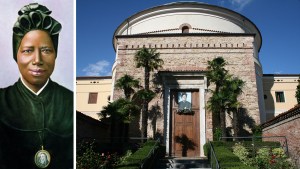I recently had a conversation with a friend, a well-informed world traveller, about human trafficking. I told him about my experience with the Arise Foundation, seeing cases of young women (and some men) who are forced into sexual slavery, and that the numbers –- both in terms people and profits – were huge.
“I thought that was just in the movies,” he said. “You know, Liam Neeson.” He was referring to a terrifying film, Taken, in which Neeson plays a former CIA operative, the father of a young woman who’s been abducted in Paris so she can be trafficked.
Unfortunately, human trafficking is not just a topic for great action films. It’s all too real, and happening all over the globe. While it isn’t surprising that my acquaintance wasn’t aware of this harrowing reality, it is unfortunate. Abolishing trafficking and slavery will only happen when ordinary people know what’s going on, often right in their own neighborhoods.
Frontline heroes
While not many people are aware of the extent of modern slavery, even fewer know that Catholic sisters are doing more than any other group globally to stop it. As is frequently the case with Catholic sisters, they’re on the front lines.
One religious sister who experienced slavery firsthand was St. Josephine Bakhita, the patroness of victims of slavery and trafficking. St. Josephine was a Sudanese woman, abducted as a young girl in the late 1800s and forced to work as a slave. She was eventually brought to Italy and freed. She became a Christian and entered religious life with the Canossian Sisters.
St. Josephine was beatified by Pope John Paul II in 1992 and made a saint in the year 2000. The suffering she endured as a slave was unimaginable. One owner cut her some 114 times, and she bore those scars for life.
The sad fact is that slavery has not been abolished, and cases every bit as brutal as St. Josephine’s are happening all over the globe. Pope Francis has asked Catholics to pray to her intercession for an end to what he calls a scourge.
From kindergarteners to prostitutes
Indeed it is a scourge, a global racket destroying the dignity of millions of people. Victims can range from children who should be in kindergarten, working in brick kilns in Pakistan; to Filipino maids in the Gulf states who are not allowed out of their workplace; to young Nigerian and Eastern European women forced into prostitution on the streets of Rome, Madrid and Paris. They could also be workers in nail salons in Chicago, New York, or Miami.
I first learned about modern slavery while living in Rome, and was lucky enough to be there when Josephine Bakhita was beatified. Through the Arise Foundation, I got to know the incredible work that Catholic sisters are doing in this sphere. Arise, founded in 2015, is a small NGO punching well above its weight. It helps frontline groups, and especially networks of sisters, in fighting the root causes of slavery today: extreme poverty and unemployment.
While many religious sisters set up safe houses for trafficked women after they have been rescued, the focus of Arise is on prevention, tackling the problem at its roots. Awareness is only the start: education, skills training and job creation are key.
Like much of the humanitarian service the Church provides around the world, the work of the sisters in this area passes without much fanfare. But it’s essential and often life-changing. Few things are more life-changing than freedom, and Catholic sisters are working better than any other group — more quietly, more effectively, and more cheaply –- to put an end to slavery.
The largest humanitarian organization in the world
Catholic sisters make up an amazing network. They come from different orders and have different missions, but if you put them together they form the largest humanitarian organization in the world. Their anti-slavery work takes place across the globe. The cases I know best are those where Arise is most active: India, the Philippines, Nigeria and Albania – all countries in which traffickers prey on the desperate poverty of so many people.
The example of Sr. Jessy Maria, a Bethany sister based in Jharkhand, a state of eastern India, is one that should make any Catholic proud. Sr. Jessy, 50, has spent the last 30 years working to improve the lives of people in the most remote communities of the area.
Working in places where most of the population is illiterate and living below the poverty line, Sr. Jessy and her team of sisters have put a major dent in the nefarious work of traffickers, who come to villages posing as recruiters with offers of jobs in the big cities. The “jobs” that are promised turn out to be different forms of exploitation and enslavement. Over the past several years the sisters have moved through villages using banners and street plays to inform people about these realities and how to avoid them.
It works. Sisters are embedded in the communities they live in. They’re close to the people, and they’re trusted. Not many NGOs can say that.
These sisters would never boast about the work they’re doing on the slavery front, whether in Los Angeles, London or Lagos. They don’t seek praise for their heroic actions, almost all of which will pass unnoticed, but they do need our support – and our prayers.
~
Greg Burke, the former spokesman for Pope Francis, works with the anti-slavery charity Arise. For more information, write to info@arise.foundation



